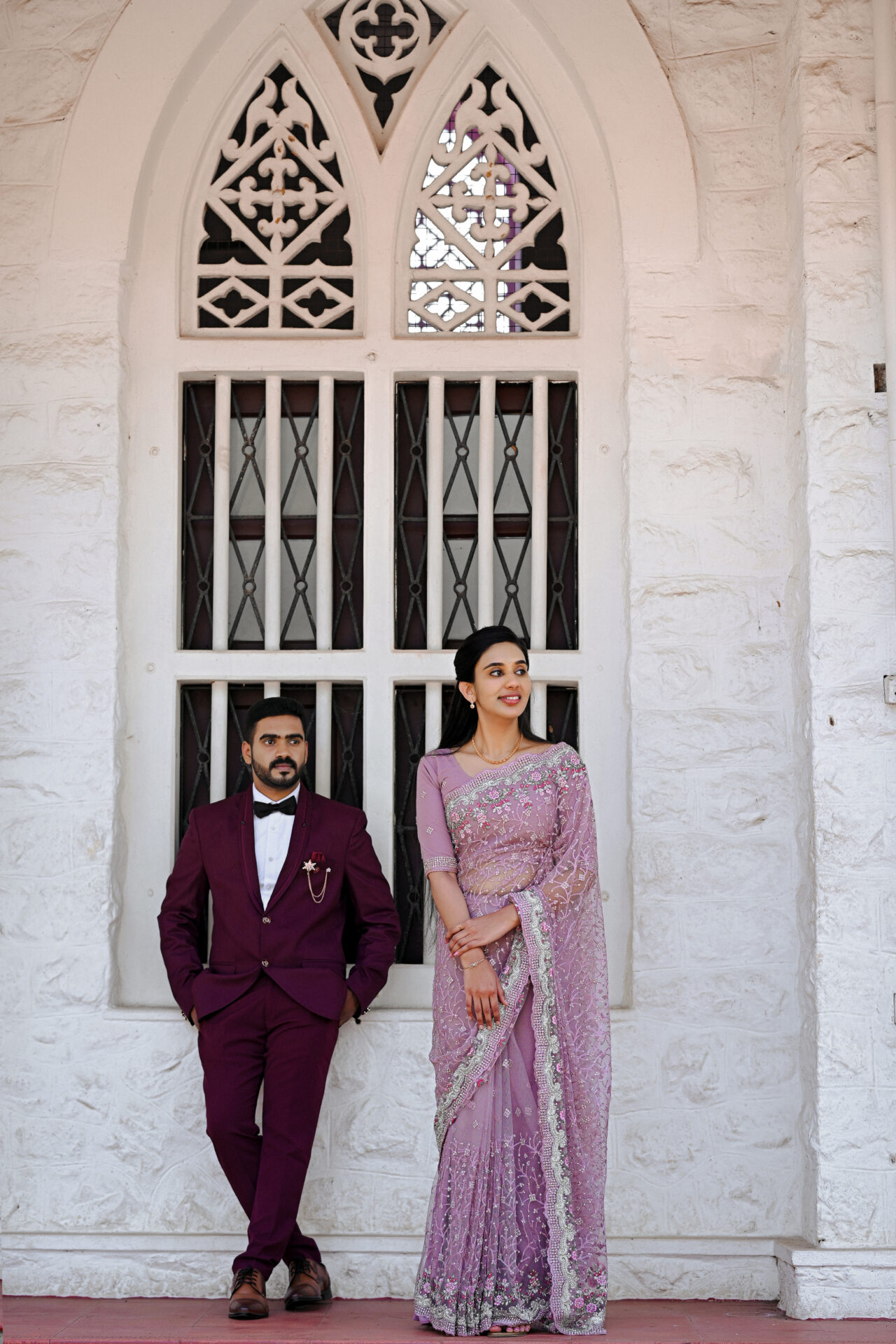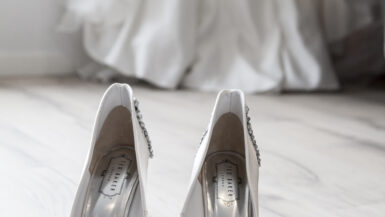As we continue to become increasingly aware of our impact on the environment, many couples are seeking ways to incorporate eco-friendly practices into their wedding celebrations. One such aspect deserving attention is the wrapping of wedding gifts. In this article, we will delve into a variety of innovative and sustainable gift wrapping ideas that not only add a unique touch to your wedding presents but also contribute positively to our planet. By exploring the benefits of using eco-friendly materials, reusable options, and creative alternatives, we aim to inspire you to make a conscious choice towards reducing waste and promoting sustainability during your special day. So, let’s unwrap the possibilities of environmentally-friendly gift presentation and make a lasting impression on both your guests and the Earth.
Creative Recycled Material Ideas
As you embark on your journey towards a more sustainable wedding, every detail counts, including the gift wrapping. By incorporating recycled materials into your gift presentation, you not only add a personal touch to your gifts but also contribute to reducing waste. This section will explore a range of inventive and eco-friendly gift wrapping ideas using recycled materials that will undoubtedly impress your guests while reflecting your commitment to the environment.
Repurposing Old Maps and Newspapers
Why not give a second life to old maps and newspapers by using them as wrapping paper? Not only will this create a unique and vintage aesthetic for your gifts, but it also reduces the need for single-use wrapping paper. Additionally, you can even personalize the wrapping further by choosing maps that represent the couple’s favorite travel destinations or newspapers featuring memorable events from their relationship.
Transforming Fabric Scraps into Gift Bags
Have some leftover fabric from your sustainable wedding dance floor project or other DIY endeavors? Turn those scraps into reusable gift bags! Sew or tie the fabric into bags of various sizes to accommodate different gifts. You can add a personalized touch by using fabric markers to write the couple’s names, wedding date, or a heartfelt message. This not only makes for a beautiful presentation but also serves as a keepsake for the couple to remember their special day.
Reusing Decorative Boxes and Tins
Another wonderful way to repurpose items you might already have at home is to use decorative boxes or tins as gift containers. Look for vintage tins or boxes at thrift stores, or simply reuse ones you’ve received in the past. Fill these containers with your gifts, and tie them up with a ribbon made from recycled material or natural twine. The recipients can then reuse the boxes for storage, creating a sustainable cycle of use and reuse.
Creating Gift Tags from Old Greeting Cards
Instead of purchasing new gift tags, consider cutting out shapes from old greeting cards to create unique, recycled tags. This not only adds a personal touch to your gifts but also gives new life to items that may have otherwise ended up in the trash. To make your tags even more special, you could use cards that have a sentimental value to the couple, such as holiday or birthday cards they’ve exchanged throughout their relationship.
By embracing these creative recycled material ideas for your wedding gift wrapping, you are not only making a positive impact on the environment but also adding a unique and personal touch to your special day. With a little imagination and resourcefulness, you can create beautiful, eco-friendly gift presentations that embody the sustainable values you and your partner hold dear.
Natural Decorative Elements
Incorporating natural elements into your eco-friendly wedding gift wrapping is a beautiful way to celebrate the environment and pay tribute to the Earth’s bounty. By using organic, biodegradable, and renewable resources, you are not only reducing waste and pollution but also creating a unique, earth-inspired aesthetic for your wedding gifts. In this section, we will explore various natural decorative elements that can be used to elevate your sustainable wedding gift presentation.
Embellishing with Dried Flowers and Herbs
Adorning your gifts with dried flowers and herbs not only adds a touch of elegance and natural beauty but also serves as a nod to your commitment to sustainability. Choose locally sourced, seasonal blooms, and herbs for an added eco-friendly touch. Alternatively, consider incorporating flowers that hold special meaning for the couple, such as their favorite blossoms or those used in their wedding bouquet. These natural embellishments can be easily attached to your gift wrapping using twine or a reusable ribbon, creating a stunning, earthy aesthetic.
Using Leaves as Gift Tags
For a truly unique and eco-friendly alternative to traditional gift tags, consider using leaves as your canvas. Choose large, sturdy leaves, such as magnolia or fig, and write your message directly onto the leaf’s surface using a metallic paint pen or a fine-tip permanent marker. Attach the leaf to your gift using a piece of twine or a reusable ribbon for an eye-catching, natural detail that will surely impress your guests.
Opting for Natural Twine and Raffia
Replace synthetic ribbons and bows with natural twine or raffia to further enhance your sustainable gift wrapping. These materials are not only biodegradable but also add a rustic and charming touch to your gift presentation. Experiment with different knotting techniques, or use the twine to create simple bows or decorative loops. The possibilities are endless, and the result is a gift that is both beautiful and environmentally responsible.
Adorning Gifts with Pinecones, Acorns, and Seed Pods
Bring the beauty of the great outdoors to your wedding gift wrapping by using items such as pinecones, acorns, and seed pods as decorative accents. These natural treasures can be found in your backyard or at a local park and can be easily attached to your gift using twine, raffia, or a reusable ribbon. Consider spray painting them in metallic colors or dusting them with glitter for an added touch of elegance and festivity.
By embracing natural decorative elements in your eco-friendly wedding gift wrapping, you are not only contributing to a healthier planet but also creating a unique and memorable aesthetic that celebrates the beauty of nature. These earth-inspired touches demonstrate your commitment to sustainability and will undoubtedly leave a lasting impression on your guests.
DIY Eco-friendly Gift Tags
Adding a personal touch to your wedding gifts goes beyond just the wrapping itself. In this section, we will explore various Do-It-Yourself (DIY) eco-friendly gift tag options that not only reduce waste but also showcase your commitment to sustainability and creativity. By crafting your own unique gift tags, you will create an innovative, environmentally-conscious addition to your wedding gift presentation that will leave a lasting impression on your guests.
Upcycling Cardboard and Old Paper
Instead of purchasing new gift tags, consider using cardboard or old paper from cereal boxes, junk mail, or magazines to create your own custom gift tags. Cut the material into your desired shape and size, and use a hole punch to make a hole for attaching the tag to your gift with a piece of twine or a reusable ribbon. You can personalize each tag by writing or stamping the recipient’s name, a heartfelt message, or even add a touch of color with watercolor paints or colored pencils.
Seed Paper Tags
For a truly unique and eco-friendly gift tag option, consider creating tags from seed paper. Seed paper is a biodegradable material embedded with seeds that can be planted after use, resulting in a beautiful array of flowers or herbs. This not only reduces waste but also serves as a thoughtful reminder of your special day as the plants grow and bloom. You can find seed paper online or at local craft stores, or even make your own by following various tutorials available on the internet. Cut the seed paper into your desired shape and size, and personalize each tag with a message or design using non-toxic ink.
Wooden Gift Tags
For a rustic and charming addition to your eco-friendly wedding gift wrapping, consider using wooden gift tags. These tags can be made from sustainable wood sources, such as reclaimed or salvaged wood, or even from wooden popsicle sticks or paint stirrers. Sand the wood to ensure a smooth surface, and then paint, stain, or write your message directly onto the wood using a permanent marker or paint pen. Attach the wooden tag to your gift using natural twine or a reusable ribbon, and you’ll have a beautiful, reusable gift tag that can be cherished for years to come.
Stamped Clay Tags
Create elegant and earthy gift tags by using air-dry clay and rubber stamps. Roll out the clay to your desired thickness, and use cookie cutters or a sharp knife to cut out your preferred tag shape. Press a rubber stamp with a design, message, or the couple’s initials into the clay, and use a straw or skewer to make a hole for attaching the tag to your gift. Allow the clay to air-dry, and then add a touch of color with acrylic paint, if desired. These clay tags can be attached to your gifts using natural twine or a reusable ribbon, and they serve as a lovely keepsake for your guests to remember your sustainable wedding celebration.
By incorporating these DIY eco-friendly gift tag ideas into your wedding gift wrapping, you are not only making a statement about your commitment to sustainability but also adding a personal and memorable touch to each gift. As you embark on this journey of creating a sustainable wedding registry and celebration, your handmade gift tags will serve as a testament to your dedication to the environment and your creative spirit.
Biodegradable Wrapping Paper Options
As you strive to create an eco-friendly wedding celebration, one crucial aspect to consider is the type of wrapping paper used for your gifts. Traditional wrapping papers often contain non-recyclable materials, such as foil or plastic, which contribute to pollution and waste. In this section, we will explore various biodegradable wrapping paper options that are not only environmentally friendly but also add a unique touch to your wedding gift presentation. By choosing these sustainable alternatives, you can make a positive impact on the environment while still creating an unforgettable gift-giving experience for your guests.
Plantable Wrapping Paper
One innovative and eco-friendly option to consider is plantable wrapping paper. This special type of paper is embedded with seeds and can be planted in the soil after use, giving life to a beautiful array of flowers or herbs. By choosing plantable wrapping paper, you not only contribute to reducing waste but also provide a memorable and interactive experience for your guests, who can watch their gifted plants grow and bloom as a reminder of your special day.
Recycled Kraft Paper
Another sustainable alternative is recycled kraft paper, which is made from post-consumer waste and is both biodegradable and recyclable. This versatile and eco-friendly option can be easily customized with stamps, paint, or other decorative elements to create a unique and personalized gift wrapping aesthetic. Additionally, its neutral color serves as the perfect canvas for incorporating natural embellishments, such as dried flowers, leaves, or twine, further enhancing your sustainable wedding theme.
Furoshiki Fabric Wrapping
For a reusable and biodegradable option, consider using furoshiki, a traditional Japanese fabric-wrapping technique. By wrapping your wedding gifts in beautiful, sustainable fabrics, such as organic cotton or linen, you not only create a visually stunning presentation but also provide your guests with a reusable and environmentally friendly wrapping alternative. Furoshiki can be easily adapted to wrap gifts of various shapes and sizes, and the fabric can be repurposed for future gift-giving occasions or utilized in other creative ways, promoting a cycle of sustainability.
Handmade Paper
Handmade paper, made from recycled materials or natural fibers, offers a unique and eco-friendly solution for your wedding gift wrapping needs. These artisanal papers are often crafted with minimal environmental impact and can be found in various textures and designs. Some handmade paper options even incorporate natural elements, such as flower petals or leaves, creating a beautiful and earthy aesthetic. By opting for handmade paper, you not only support artisans and small businesses but also contribute to a more sustainable gift-giving experience.
By exploring these biodegradable wrapping paper options, you are taking a significant step towards a more sustainable and eco-friendly wedding celebration. Each choice not only reduces waste and pollution but also adds a distinctive and memorable touch to your gift presentation. Embracing these earth-friendly alternatives demonstrates your commitment to the environment and allows you and your guests to enjoy the gift-giving experience without compromising the health of our planet.
Reusable Fabric Gift Wraps
As we continue our exploration of eco-friendly wedding gift wrapping ideas, let’s delve into the world of reusable fabric gift wraps. Fabric wraps not only serve as a sustainable alternative to single-use paper but also add an element of elegance and sophistication to your gift presentation. In this section, we will introduce various fabric wrapping techniques and materials that can be used to create a visually stunning and environmentally-friendly gift-giving experience.
Discover the Art of Furoshiki
Furoshiki is a traditional Japanese fabric-wrapping technique that has been used for centuries to wrap and transport items ranging from gifts to everyday belongings. With its versatile and simple folding methods, furoshiki can be adapted to accommodate gifts of various shapes and sizes. By mastering this ancient art form, you’ll not only create a unique and exquisite gift presentation but also embrace a reusable and eco-friendly alternative to traditional wrapping paper.
Choosing Sustainable Fabrics
When selecting fabric for your reusable gift wraps, it’s essential to consider the environmental impact of the material. Opt for fabrics made from natural fibers, such as organic cotton, linen, or hemp, as they are biodegradable and have a lower environmental footprint compared to synthetic materials. Additionally, choosing fabrics with minimal dyes and chemical treatments further reduces the ecological impact and aligns with your sustainable wedding theme.
Customizing Your Fabric Wraps
One of the many benefits of reusable fabric gift wraps is the opportunity to personalize and customize the material to suit your wedding theme or the couple’s preferences. Consider using fabric paint, stencils, or hand-stitching to add designs, monograms, or messages to your fabric wraps. You can also experiment with various fabric textures and patterns, creating a visually stunning and one-of-a-kind gift presentation that is both eco-friendly and memorable.
Embracing Versatility and Creativity
Reusable fabric gift wraps not only serve as a sustainable alternative to traditional wrapping paper but also provide a versatile and creative solution for various gift-giving occasions. By mastering different wrapping techniques and experimenting with fabric materials, you’ll have an arsenal of eco-friendly gift wrapping options at your disposal for future celebrations, such as anniversaries, birthdays, and holidays. Your guests will surely appreciate the thought and effort put into creating a reusable and environmentally-conscious gift-wrapping solution.
By incorporating reusable fabric gift wraps into your eco-friendly wedding gift presentation, you are making a conscious choice to reduce waste and embrace sustainability. These versatile and customizable fabric wraps not only create an unforgettable and aesthetically pleasing gift-giving experience but also serve as a testament to your commitment to protecting our planet. Embrace the art of fabric wrapping and leave a lasting impression on your guests while contributing positively to the environment.




Leave a reply